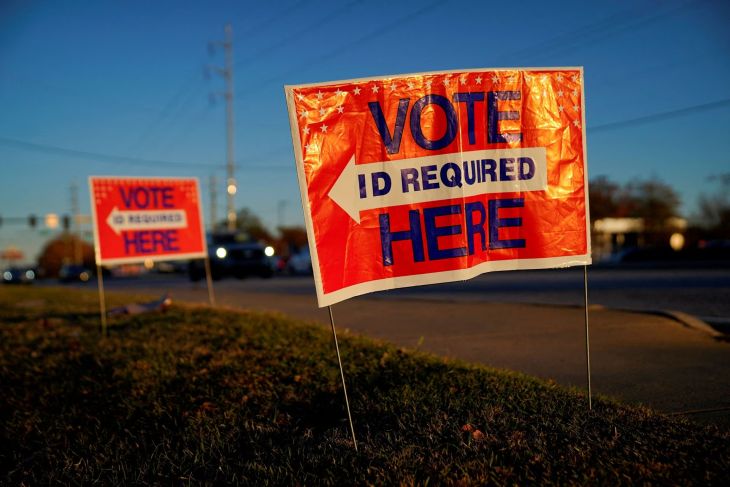In a recent article, I spoke about how the extreme right in many countries are uniting to pursue their common interests perhaps at the cost of liberal democracy.
To win this battle, liberal democracies will have to work hard to rebuild trust among their electorates.
Trust is the cornerstone of successful democratic governance. In liberal democracies, trust in democratic institutions plays a vital role in ensuring the stability, legitimacy, and effectiveness of the system.
Trust in democratic institutions is crucial for fostering citizen participation. When citizens have faith in their institutions, they are more likely to actively engage in political processes, such as voting, joining political parties, or participating in public debates.
Trust empowers citizens to believe that their voices matter and that their participation can bring about meaningful change. In contrast, a lack of trust can lead to apathy, disengagement, and a decline in citizen participation, which undermines the democratic process.
A recent IPSOS poll indicated that fewer than 50% of people in many liberal democracies trust their governments.
Why?
There are a number of reasons.
Poor governance is the number one reason. Politicians who do not look out for the middle and lower class --“the masses” -- and policies that favor the rich and special interest groups over the needs and viewpoints of the general population create high levels of alienation and frustration among voters.
Autocratic leaders who use lies and innuendo instead of facts and have these amplified by the media and unchallenged by liberal democratic leaders and journalists divide the electorate. Their mendacious hyperbole provides disenchanted voters with an excuse to vote for them.
This is a strategy employed by all extreme right parties as we have observed in the United States and Europe.
Many people feel alienated from their liberal governments and see no future. Our children cannot aspire to own a house. At least half of their pay goes to taxes, and they can’t drive on our roads or get decent and timely healthcare.
How can we be surprised when people, seeing the results of these policies on the quality of their daily life, believe that the system has failed them? While some aspiring leaders offer simplistic strategies to address their fears without much explanation, the governing parties make window dressing statements and avoid substantial policy changes to actually make things better. Can we be surprised that parties offering change gain the ears of frustrated voters?
People are looking for results. They are looking for leaders who make their lives better, who use commonsense to deliver policies and programs that are defensible and deliver benefits with no waste or catering to special interests.
Conversely, a lack of trust can lead to political polarization, social unrest, and even the erosion of democratic norms and values. When voters are faced with an inability to make ends meet yet observe government spending on unnecessary or impractical programs, they lose trust in the ability of their government to address their concerns and provide solutions to their daily problems.
Despite the importance of trust in democratic institutions, liberal democracies face various challenges that can erode trust. These challenges include corruption, political scandals, misinformation, and the perception of elite capture.
Additionally, economic inequality and social divisions can undermine trust in democratic institutions. Addressing these challenges requires governments to listen to the voters and address their needs. American political consultant James Carville famously set the tone for the 1992 American election with his statement that “it’s the economy stupid”.
If the economy is properly managed and economic and social policy deliver the goods, the accompanying social peace will ensure that voters trust in the system and don’t follow those who would destroy it.
It also requires an ability to craft effective communications strategies that overcome the divisions created by media and extremist political leaders. It calls for confronting lies and innuendos with the truth, and calling out politicians who cater mendacity.
It requires new ways to use social media to bypass the media and get their messages directly out to the public.
As well, political parties must factor into their reasoning voter fatigue. Leaders often outstay their welcome, believing that only they can address the dangers posed by extremist politicians and parties.
Centrist liberals must ensure that there are term limits for politicians at all levels of government. It is distressing to see firmly entrenched politicians serving the special interest they have collected throughout their careers rather than have new generations of politicians take office for a limited time and respond to the needs of the present.
This is especially true when technology creates rapid and profound change and demands that political leaders know how technology works and can legislate mechanisms to ensure that technology and its products work for citizens and not for special interest groups.
Finally, liberal democrats must learn to use the media effectively and find new ways to promote their messages and successes on social media – the media that appeal to the young voters whose interest must stimulated to elect governments that seek a better future rather than a return to a conformist past.
Keep reading: Trust
Edición: Fernando Sierra
Proyectos realizados en el país tendrán incentivo fiscal de 30 % del ISR
La Jornada Maya
El célebre “Jefe Ratonero del Gabinete” ha servido a seis primeros ministros y se mantiene como figura entrañable del poder británico
Ap
El plan urbano propone una visión participativa y sostenible, abierta a ajustes mediante consulta ciudadana
Rosario Ruiz Canduriz
Comparsas, batucadas y carros alegóricos animaron el arranque; saldo blanco y amplia participación ciudadana
La Jornada Maya
